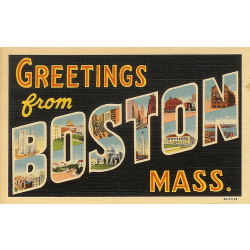
There are many pathways available for prospective nursing students. The nursing profession has four distinct roles: certified nursing assistant (CNA), licensed practical nurse (LPN), registered nurse (RN), and advanced practice registered nurse (APRN).
CNAs fill the most junior role in nursing. They are certified with a brief course lasting eight to ten weeks, culminating with a state-administered examination. The CNA role thus offers the least expensive entry into the nursing profession. The Boston metro area’s 17,500 CNAs earn a median annual salary of almost $30,000. Nursing assistants typically work under the close supervision of registered and licensed practical nurses.
LPNs are a level more senior than CNAs. They are qualified to practice after 12 to 18 months of study and successful completion of the NCLEX-PN national licensure examination. Boston-area LPNs earn between $45,000 and $60,000 annually. These nurses are in high demand with major local employers like Tenet Health and Genesis Healthcare.
RNs and APRNs fill more senior nursing roles; they therefore require longer periods of study. RNs in Massachusetts must complete a two-year associate degree, three-year hospital diploma, or four-year bachelor’s degree program. APRNs must also pursue graduate-level study in their chosen area of specialization. University of Massachusetts Boston offers well-regarded programs at the baccalaureate, master’s, and doctoral degree levels.
2024 NURSING SCHOOL RANKINGS
For our 2024 rankings, the research team at Nursing Schools Almanac collected data on nearly 3,000 nursing schools and campuses throughout the United States. We evaluated each school on three dimensions:
- The institution’s academic prestige and perceived value
- The breadth and depth of nursing programs offered
- Student success, particularly on the NCLEX licensure examination
We then combined these assessments into an overall score and ranked the schools accordingly. For a detailed description of our assessment methodology and dimension weights, please see here.
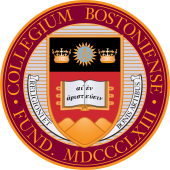
#1: Boston College
The William F. Connell School of Nursing is geared towards global diversity and social justice. The college’s nursing students enjoy a liberal arts education and receive a range of cultural healthcare perspectives, with access to six international locations. Approximately 100 BSN and 40 MSN students graduate from the school’s prelicensure programs each year. BSN students have maintained a strong 94% NCLEX pass rate over the past decade, while direct entry MSN students scored a perfect 100% pass rate in seven of the past ten years. The school offers a wide range of graduate programs, including certified registered nurse anesthetist (CRNA) and pediatric or psychiatric nurse practitioner (NP) options.

#2: Northeastern University
Northeastern’s School of Nursing, part of the Bouvé College of Health Sciences, provides students broad interaction across Bouvé’s entire faculty. The school maintains a strong focus on research and an interdisciplinary approach to healthcare. Indeed, Northeastern was designated an NLN Center of Excellence in 2013 for enhancing student learning and professional development. Prelicensure students perform very well on the NCLEX exam. The school’s BSN program posted a 91% pass rate over the past decade, while its direct entry MSN program scored a phenomenal 96% pass rate over that time period. Northeastern also offers an online RN-to-BSN program, an MSN curriculum with six nurse practitioner specialties, two doctoral nursing degrees (PhD and DNP), and a nurse anesthesia program.
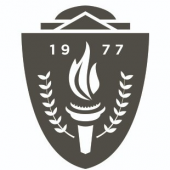
#3: MGH Institute of Health Professions
The MGH Institute of Health Professions is always innovating. In 2007, its School of Nursing was one of the first four institutions in the country to create an accredited DNP program. The school introduced a holistic Mind Body Spirit program in 2011 and a Global Health Nursing certification program in 2013. More than 80% of the school’s faculty members possess a doctoral degree. MGH Institute students perform very well on licensure and certification exams. Prelicensure BSN students have achieved an 87% first-time NCLEX pass rate over the past decade, while their counterparts in the direct entry MSN program scored a 91% first-time pass rate over that time period. Advanced practice students perform similarly well on their APRN certification exams.
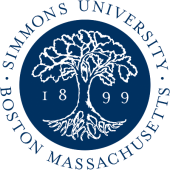
#4: Simmons University
Simmons’s low student-to-faculty ratio allows it to concentrate on strong, clinically based baccalaureate, master’s, post-master’s, and doctoral programs in nursing. Simmons students can also take advantage of Boston’s Longwood Medical Area, which features 21 renowned medical and academic institutions in their immediate backyard. The school graduates approximately 200 students annually from its prelicensure BSN program, with a strong 93% NCLEX pass rate over the past decade. Simmons’s direct entry MSN program graduates an additional 30-50 students annually. It has boasted a phenomenal 98% NCLEX pass rate over the past decade, with six out of ten cohorts scoring a perfect 100% pass rate.
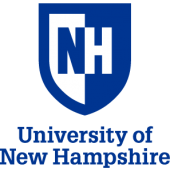
#5: University of New Hampshire
The Department of Nursing at UNH’s College of Health and Human Services offers several nursing pathways including a traditional four-year BSN degree, a direct-entry MSN program, an MSN degree with three tracks, and an online DNP program. Students from the traditional BSN program have scored a 94% NCLEX exam pass rate over the past eight years, while their counterparts in the direct-entry MSN program have achieved a 96% pass rate over the same time period. The MSN curriculum offers specializations in clinical nurse leader, evidence-based nursing, and family nurse practitioner. The school also offers post-master’s certificates in family nurse practitioner and psychiatric mental health.
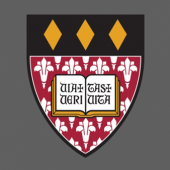
#6: Regis College
The Richard and Sheila Young School of Nursing at Regis College has received three consecutive NLN Center of Excellence designations since 2008. With small class sizes and four high-tech simulation labs, the school provides its students experience-oriented nursing education. Enrollees in the direct entry MSN program have passed the NCLEX licensure exam at a stellar 96% rate over the past decade. The school also offers a traditional four-year BSN, an RN-to-BSN program with two pathways (non-nursing bachelor’s, no bachelor’s), a postlicensure MSN program with ten specialty tracks (five in leadership, five for nurse practitioners), and a DNP program that is delivered both on campus and online.
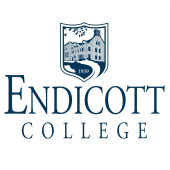
#7: Endicott College
Fully equipped laboratories, intensive clinical experiences, and small class sizes are several of the benefits that Endicott nursing students enjoy. A typical nursing class has between 10 and 36 students, and clinical groups average seven students per instructor. The BSN curriculum includes a minimum of 920 clinical practice hours, for which the school has an affiliation with 60 local healthcare facilities. In the final semester, an experienced preceptor mentors each student during a 144-hour internship. This hands-on instruction has helped Endicott’s BSN graduates pass the NCLEX exam at an 87% rate over the past decade. Graduate nursing students can choose from Endicott’s four MSN specializations, three post-master’s certificates, and a nursing PhD program.
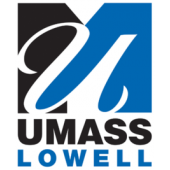
#8: University of Massachusetts Lowell
UMass Lowell’s graduate nursing program is consistently ranked among the best in the nation by U.S. News & World Report. The school boasts 100+ healthcare partners, 200+ students at clinical sites, and 100+ faculty publications. Graduates of the prelicensure BSN program have averaged an 87% first-time NCLEX pass rate over the past decade. Recently recognized by the National Hartford Center of Gerontological Nursing Excellence, UMass Lowell also offers fast-track BSN-to-MSN and MSN-to-DNP programs, as well as a master’s certification in adult-gerontology nursing.
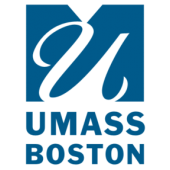
#9: University of Massachusetts Boston
UMass Boston is the ninth-largest nursing school in the country and proudly offers the only publicly supported nursing program in the greater Boston area. The school graduates a significant number of racially and ethnically diverse baccalaureate, master’s, and doctoral students. UMass Boston is known for its abundant nursing resources, including affiliations with 200+ healthcare organizations and an on-campus Center for Clinical Education and Research. The school graduates approximately 200 BSN students annually. It also provides MSN tracks for aspiring family nurse practitioners, adult-gerontology nurse practitioners, and adult-gerontology acute care clinical nurse specialists.
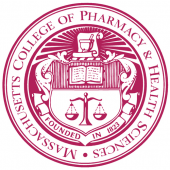
#10: Massachusetts College of Pharmacy and Health Sciences
Graduates from Massachusetts College of Pharmacy and Health Sciences are the #1 salary earners in New England, according to the U.S. Department of Education. Spread across three campus locations – Boston, Worcester, and Manchester – MCPHS is one of the few private universities in the country specializing solely in the education of healthcare professionals. Nursing students receive a broad-based education that prepares them well for licensure exams and future practice. For example, BSN students at the school’s Worcester and Manchester campuses have both averaged a 92% NCLEX pass rate over the past decade. Graduate nursing students can choose from two MSN nurse practitioner tracks and a DNP program, all offered 100% online.
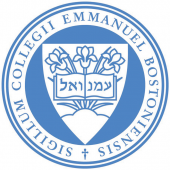
#11: Emmanuel College
Located in the heart of the Longwood Medical Area, Emmanuel College has a niche focus on educating registered nurses. Emmanuel’s degree completion program combines core baccalaureate courses in English, social science, history, and religion with an advanced nursing curriculum, culminating in a BSN degree. For graduate students pursing an MSN or post-master’s certificate, the college offers two tracks. Nurse educators can prepare for certification by the NLN, and nurse administrators can prepare for certification by the American Nurses Credentialing Center.
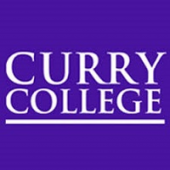
#12: Curry College
Curry College was the first nursing program in the state of Massachusetts to earn accreditation from the Commission on Collegiate Nursing Education. The School of Nursing offers three BSN pathways (traditional, accelerated second degree, RN-to-BSN) and two MSN specializations (nursing administration, nursing education). Curry College’s location in the Boston metropolitan area enables students to experience dynamic, hands-on learning at some of the best medical facilities in the world. Clinical rotations begin during sophomore year at a wide range of urban and suburban institutions, with rotations that include pediatrics, maternity care, and mental health. Curry College graduates approximately 100 prelicensure BSN students each year. These individuals have averaged an 87% NCLEX pass rate over the past decade, including a stellar 97% pass rate in 2018.
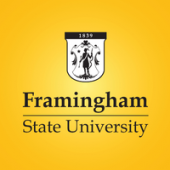
#13: Framingham State University
The Nursing Department at Framingham State offers a single undergraduate program in nursing, which is only available to registered nurses pursuing their BSN completion. At the graduate level, Framingham State has MSN concentrations in nursing education and nursing leadership. MSN-educated nurses can also complete a post-master’s certificate in either area. Graduate students can pursue several specialty certifications at the end of their studies. These include the ANCC’s Nurse Executive certification, a Clinical Nurse Leader certification offered by the Commission of Nurse Certifications, and the NLN’s Certified Nurse Educator certification.
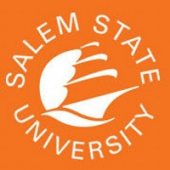
#14: Salem State University
The School of Nursing at Salem State University offers four BSN pathways (traditional, accelerated, LPN entry, RN entry) and a breadth of MSN options. The BSN curriculum blends academic and experiential learning with clinical practicums in adult health, maternal-child health, and community settings. The accelerated BSN is a 15-month pathway for students who hold a baccalaureate degree in a non-nursing field. The LPN-to-BSN program is similarly streamlined, requiring just four semesters and a summer session to complete. Across these prelicensure programs, graduates have achieved an 83% first-time NCLEX pass rate over the past decade. Salem State’s MSN program has three tracks: adult-gerontology primary care nurse practitioner, nursing education, and nursing leadership in health systems. Designed for working professionals, the MSN is delivered in an evening and hybrid format.
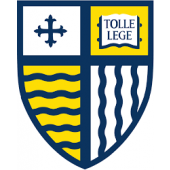
#15: Merrimack College
Merrimack College was founded in March 1947 as the Augustinian College of the Merrimack Valley. Nearly 22,000 students have graduated from Merrimack over its seventy-year history. The School of Health Sciences offers a prelicensure BSN program that combines rigorous coursework with local healthcare partnerships. The curriculum incorporates hands-on learning opportunities so that students become safe, compassionate caregivers as well as leaders in the nursing profession. Graduates are prepared to sit for the NCLEX-RN licensure examination. Upon successful completion, they can pursue careers in a variety of healthcare settings including acute care centers, ambulatory and outpatient clinics, community centers, hospitals, public health services, and skilled nursing facilities.
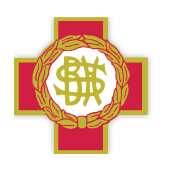
#16: Brockton Hospital School of Nursing
An integral part of Signature Healthcare, Brockton Hospital School of Nursing is the only hospital-based nursing program in the state of Massachusetts. Originally established in 1897, BHSN has graduated over 2,800 nurses throughout its storied history. The school strives for diversity and offers several nursing diploma pathways, including a two-year day program and a four-year part-time program on weekends and evenings. Approximately 88% of BHSN graduates have passed the NCLEX-RN licensure exam on their first try over the past decade. Additionally, the school’s affiliation with Fisher College allows these graduates to transition seamlessly into Fisher’s RN-to-BSN program.
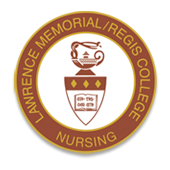
#17: Lawrence Memorial / Regis College
In 1998, Lawrence Memorial Hospital School of Nursing collaborated with Regis College to design and launch a new ADN program. The joint curriculum awards an associate of science degree with a major in nursing. Clinical experiences are offered at major Boston teaching hospitals, suburban hospitals, long-term care facilities, and a variety of community, home care, and social service agencies. The program shares its campus with Lawrence Memorial Hospital and Courtyard Nursing Care Center, both affiliates of Hallmark Health. The Lawrence Memorial / Regis College ADN program produces 100+ newly minted nurses annually, with a strong NCLEX pass rate of 87% over the past decade. Graduates of the ADN program can pursue two different pathways to earn a BSN degree from Regis College.
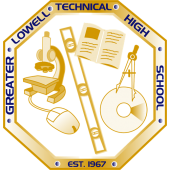
#18: Greater Lowell Technical High School
Greater Lowell Technical High School offers a practical nursing program that is fully approved by the Massachusetts Board of Registration in Nursing and fully accredited by the Council on Occupational Education. The 40-week fulltime program requires 1,097 hours of classroom instruction and 540 hours of clinical experience. The clinical experience allows students to apply classroom theory within various community healthcare facilities. Graduates are eligible to take the NCLEX-PN licensure examination. Greater Lowell Technical High School graduates approximately 70 LPN students annually, and these students have achieved an excellent 93% first-time NCLEX pass rate over the past decade. The graduating class of 2018 also enjoyed a 97% job placement rate.
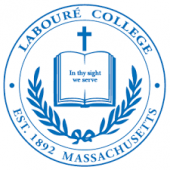
#19: Labouré College
The Labouré College nursing program allows graduates to begin their nursing employment two years earlier than a traditional four-year program. Students first complete an ADN program and pass the NCLEX-RN licensure examination to earn their RN credentials. The college’s ADN graduates have averaged a 74% first-time pass rate on the NCLEX exam over the past decade. Newly licensed RNs can then enroll in Labouré’s RN-to-BSN degree and complete their BSN coursework while they earn valuable work experience. Some students take a break from their studies and work for several years before returning to complete their BSN.
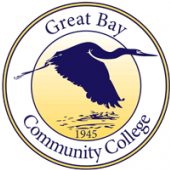
#20: Great Bay Community College
The ADN program at Great Bay Community College prepares students to provide direct care to clients in acute care, long-term care, and other structured settings. The two-year program includes instruction in communication, teamwork, professionalism, leadership, informatics, evidence-based practice, systems-based practice, patient-centered care, quality improvement, and safety. Clinical experiences are offered at a wide variety of times and locations, and students may complete the program on a full-time or part-time basis. Great Bay’s ADN graduates have enjoyed an excellent 93% pass rate on the NCLEX-RN licensure exam over the past decade.
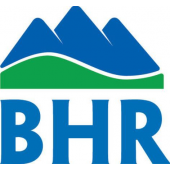
#21: Blue Hills Regional Technical School
Blue Hills Regional Technical School offers vocational programs in the areas of healthcare, science, and technology. The nursing program at Blue Hills offers an LPN pathway for post-secondary adults. This immersive fulltime program provides a rigorous combination of nursing theory and clinical practice in preparation for the NCLEX-PN national licensure examination. Students must attend classes for forty weeks from September to June, Monday through Friday. The program typically graduates 30-40 LPN candidates annually. These students have averaged an exceptional 95% first-time NCLEX pass rate over the past decade.
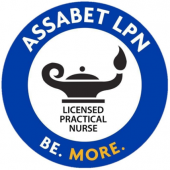
#22: Assabet Valley Regional Technical School
Assabet Valley Regional Technical School offers a ten-month fulltime certificate program in licensed practical nursing. The school accepts a new cohort of approximately forty LPN students annually, with daytime classes conducted five days per week from late August through June. Students are trained to provide direct patient care, including the administration of medications and treatments. They are also prepared to manage and delegate the nursing care provided by unlicensed personnel, particularly in long-term care settings. At the conclusion of their studies, graduates may pursue LPN licensure by sitting for the NCLEX-PN examination. AVRTS students have averaged an impressive 93% first-time NCLEX pass rate over the past decade. The school also promotes pathways for graduates to continue their education at the associate degree, bachelor’s degree, and even graduate level.
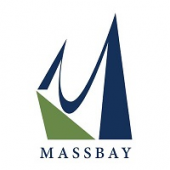
#23: MassBay Community College
The nursing program at MassBay Community College has two pathways for aspiring nurses: an LPN certificate and an ADN degree. The LPN program prepares students to join the workforce as practical nurses, assuming entry-level patient care positions in hospitals and skilled nursing facilities. The curriculum includes both classroom lectures and clinical practice, and it takes just ten months to complete. The ADN is a rigorous two-year program that prepares students for initial RN licensure. Clinical practicums are conducted at a variety of hospitals and healthcare facilities in the MetroWest area. Over the past decade, students from both programs have performed well on the NCLEX licensure examination, with ADN students passing at a 91% rate and LPN students also passing at a 91% rate. Both programs have seen multiple 100% pass rates in recent years.
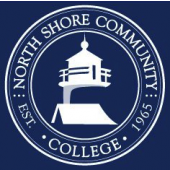
#24: North Shore Community College
North Shore Community College has provided accessible and affordable education to the communities of Northeast Massachusetts for over fifty years. The school conducts a traditional two-year AS degree in registered nursing, a one-year advanced placement LPN-to-RN option, and a ten-month certificate in practical nursing. All three pathways produce excellent student outcomes. For example, NSCC boasted a 95% first-time NCLEX-RN pass rate and an 88% first-time NCLEX-PN pass rate over the past three years. Job placement rates were also excellent during that timeframe, averaging 88% for RN graduates and 84% for LPN graduates. Nursing students can take advantage of the college’s relationships with more than 25 clinical affiliates in the surrounding metropolitan area, including the Danvers Council on Aging, Mass General Brigham Salem Hospital, and Lahey Beverly Hospital. The college also holds baccalaureate nursing transfer agreements with eight institutions including Endicott College, Framingham State University, and Rivier University, providing RN graduates a seamless transition to a BSN degree program.
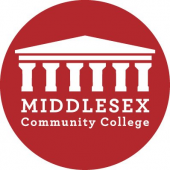
#25: Middlesex Community College
Established in 1970, Middlesex Community College provides more than 80 degree and certificate programs to nearly 11,000 students from all walks of life. MCC is one of the few community colleges to offer an extensive study abroad program with experiences in countries like Greece, Spain, Belize, and China. The college’s Nursing and Allied Health Division conducts a nurse aide certificate program and an associate degree in nursing. The ADN program, which has a 97% job placement rate within six months of graduation, is accredited by the Accreditation Commission for Education in Nursing. Graduates are prepared to sit for the NCLEX-RN licensure examination. Over the past decade, Middlesex Community College’s ADN graduates have averaged a solid 89% first-time NCLEX pass rate.
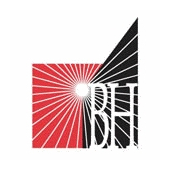
#26: Bunker Hill Community College
Bunker Hill Community College is a fully accredited two-year institution that serves nearly 20,000 students annually through more than 100 associate degree, certificate, and transfer programs. The Division of Health Sciences conducts an ADN program that consists of nursing theory, laboratory work, simulation exercises, and clinical practice at local hospitals and healthcare facilities. Graduates of the program are prepared to sit for the NCLEX-RN licensure examination. Over the past decade, ADN students have averaged an 86% first-time NCLEX pass rate. Bunker Hill Community College also has transfer agreements with major universities such as University of Massachusetts Boston and Framingham State University, allowing ADN graduates to seamlessly pursue baccalaureate education.
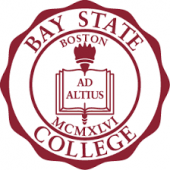
#27: Bay State College
Bay State College is a small institution that serves approximately 800 students enrolled in more than twenty career-focused programs leading to an associate or bachelor’s degree. The school has campuses in Boston and Taunton, as well as online and evening class schedules for adult learners. Bay State College offers two ADN pathways (traditional and LPN advanced placement) and an online RN-to-BSN degree completion program. All nursing programs provide training in health and illness through lab and hospital-based clinicals. Coursework includes pathophysiology, mental health concepts, and nursing care of the childbearing family. Graduates from the ADN program are prepared to sit for the NCLEX-RN licensure examination. The class of 2020 scored an impressive 94% first-time NCLEX pass rate. Bay State nursing graduates are often hired by top local hospitals like Lawrence Memorial, Boston Medical Center, Beth Israel Deaconess, and Lahey Hospitals.
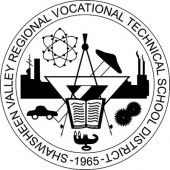
#28: Shawsheen Valley Technical High School
The Shawsheen Valley School of Practical Nursing has more than twenty years of experience educating practical nurses. The school’s curriculum provides the theoretical frameworks, laboratory skills, and clinical experiences for graduates to successfully assume the full scope of LPN responsibilities in Massachusetts. Students attend the program in a convenient and flexible evening and weekend format, following the high school’s forty-week calendar. Approximately 30-40 LPN candidates complete the program annually. These students have an impressive track record on the NCLEX-PN licensure examination, including an 88% first-time pass rate over the past decade.

#29: Tri-County Regional Vocational Technical School
Tri-County Regional Vocational Technical School was established in 1977 with a mission to provide comprehensive technical and academic education to students across the region. Tri-County’s nursing department offers pathways to a career as a certified nursing assistant or a licensed practical nurse. The CNA program explores bodily systems and vital signs, communication, disease processes, and medical terminology. The LPN program explores health promotion, patient care across the lifespan, and therapeutic communication, with both 10-month and 20-month options. Students complete clinical experiences at local hospitals and clinics, and they participate in field trips to healthcare facilities to assess job prospects. Tri-County’s practical nursing graduates are well prepared for the NCLEX-PN licensure examination, scoring an 88% first-time pass rate over the past decade.

#30: Massasoit Community College
Massasoit Community College serves 5,500 students across campuses in Brockton, Canton, and Middleborough. The Massasoit nursing program is approved by the Massachusetts Board of Registered Nursing and accredited by the Accreditation Commission for Education in Nursing. Two associate degree pathways are available: a generic option and an LPN-to-ADN transition program. Both pathways have full-time and part-time options. Coursework covers critical healthcare topics like anatomy, physiology, and human development. Students complete on-campus simulation laboratory experiences and clinical rotations at area hospitals, nursing homes, community health centers, and clinics. Graduates are eligible to sit for the NCLEX-RN licensure examination. Over the past decade, Massasoit Community College’s ADN graduates have achieved an 86% first-time NCLEX pass rate.
